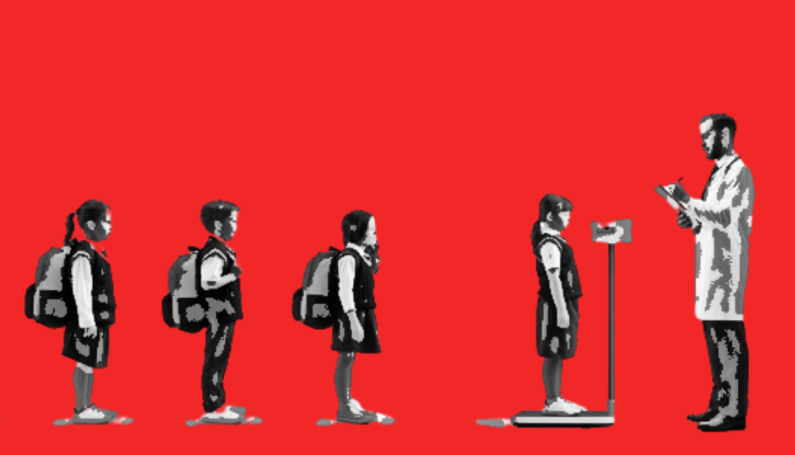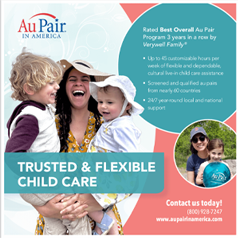My daughter was 4 months old the first time my doctor suggested anti-anxiety medication to me. I viewed it as a personal failing on my part — further proof that I was not the ideal mother society expected me to be.
I had spent months struggling, convincing myself I was just tired, just overwhelmed, just adjusting to this massive life change. But in reality, I was drowning in anxiety, barely keeping my head above water. And yet, the idea of taking medication felt like admitting defeat.
Society loves to tell us that motherhood is this beautiful, joy-filled experience, right? The baby snuggles, the first smiles, the endless love. And yes, some days it is those things. But for so many moms, it’s also incredibly hard — especially on their mental health.
The reality is that up to one in five moms struggles with perinatal mood and anxiety disorders. That’s a huge number of women trying to care for their children while battling something that can make even the simplest tasks feel overwhelming.
And yet, despite everything we know about how common postpartum depression and anxiety are, access to the medications that help — like SSRIs — is being questioned and even threatened by the current U.S. presidential administration. Moms are once again put in a position where their health, their well-being, and, ultimately, their children’s well-being are treated as an afterthought — if we’re thought of at all.
Here’s the scientific truth: SSRIs (selective serotonin reuptake inhibitors) have been studied over and over, and the research is clear. Untreated depression during pregnancy isn’t just hard on the mom, it’s risky for the baby, too. It’s linked to higher rates of preterm birth, low birth weight, and developmental delays. On the flip side, when moms get the help they need — including medication — outcomes are better for everyone. Moms feel more like themselves, they bond better with their babies, and their kids thrive emotionally and developmentally.
The same is true for postpartum depression and anxiety. These conditions don’t just affect the mother — they can ripple into the lives of her children. Studies have shown that when moms struggle with untreated depression, their kids are more likely to have emotional and behavioral challenges. But when moms get treatment, including SSRIs, children have better social-emotional development. The truth is, a mother’s mental health isn’t just about her — it’s about her whole family.
Even with all this research, the fear-based messaging around antidepressants persists. Moms are made to feel guilty for even considering medication, despite the fact that untreated depression poses far greater risks than any small, often inconclusive risks associated with SSRIs. I know, because I felt that guilt myself. It took time for me to accept that taking medication didn’t make me weak — it made me a better, more present mother. No mom should be left to struggle just because of outdated stigma or political interference.
Making it harder for moms to get the medication they need is dangerous. We already know suicide is one of the leading causes of maternal death in the U.S. Moms are already facing so many barriers to care for maternal mental health — stigma, cost, lack of childcare, lack of family or partner support. The last thing they need is another obstacle to something that could help them heal.
We have to stop treating maternal mental health like an afterthought. More than two years later, the local bills introduced in the immediate aftermath of the Clancy family tragedy to help women access maternal mental healthcare are still stalled on Beacon Hill. Our local lawmakers and our federal administration need to step up and show mothers they actually care about the things that help families instead of threatening to take them away in the name of an unsubstantiated conspiracy theory.
The science is there. The real-life experiences of moms are there. SSRIs are one of the most effective treatments for perinatal depression and anxiety, and making sure moms can access them is an investment in healthier families. If we really want to “make America healthy again,” let’s stop questioning whether moms deserve this care, and let’s make it easier for them to get it — through better screening, fewer barriers to treatment, and more support.
Because when moms are OK, their babies are OK. And that should be the priority — always.
References:
Maternal depression and anxiety across the postpartum year and infant social engagement, fear regulation, and stress reactivity. Journal of the American Academy of Child & Adolescent Psychiatry. https://pubmed.ncbi.nlm.nih.gov/19625979/
A meta-analysis of depression during pregnancy and the risk of preterm birth, low birth weight, and intrauterine growth restriction. Archives of General Psychiatry. https://jamanetwork.com/journals/jamapsychiatry/fullarticle/210887
Homicide and suicide during the perinatal period: Findings from the National Violent Death Reporting System. Obstetrics & Gynecology. https://pubmed.ncbi.nlm.nih.gov/22015873/
Onset timing, thoughts of self-harm, and diagnoses in postpartum women with screen-positive depression findings. JAMA Psychiatry. https://jamanetwork.com/journals/jamapsychiatry/fullarticle/1676342
Diagnosis, pathophysiology, and management of mood disorders in pregnant and postpartum women. BMJ. https://www.bmj.com/content/359/bmj.j3338
















